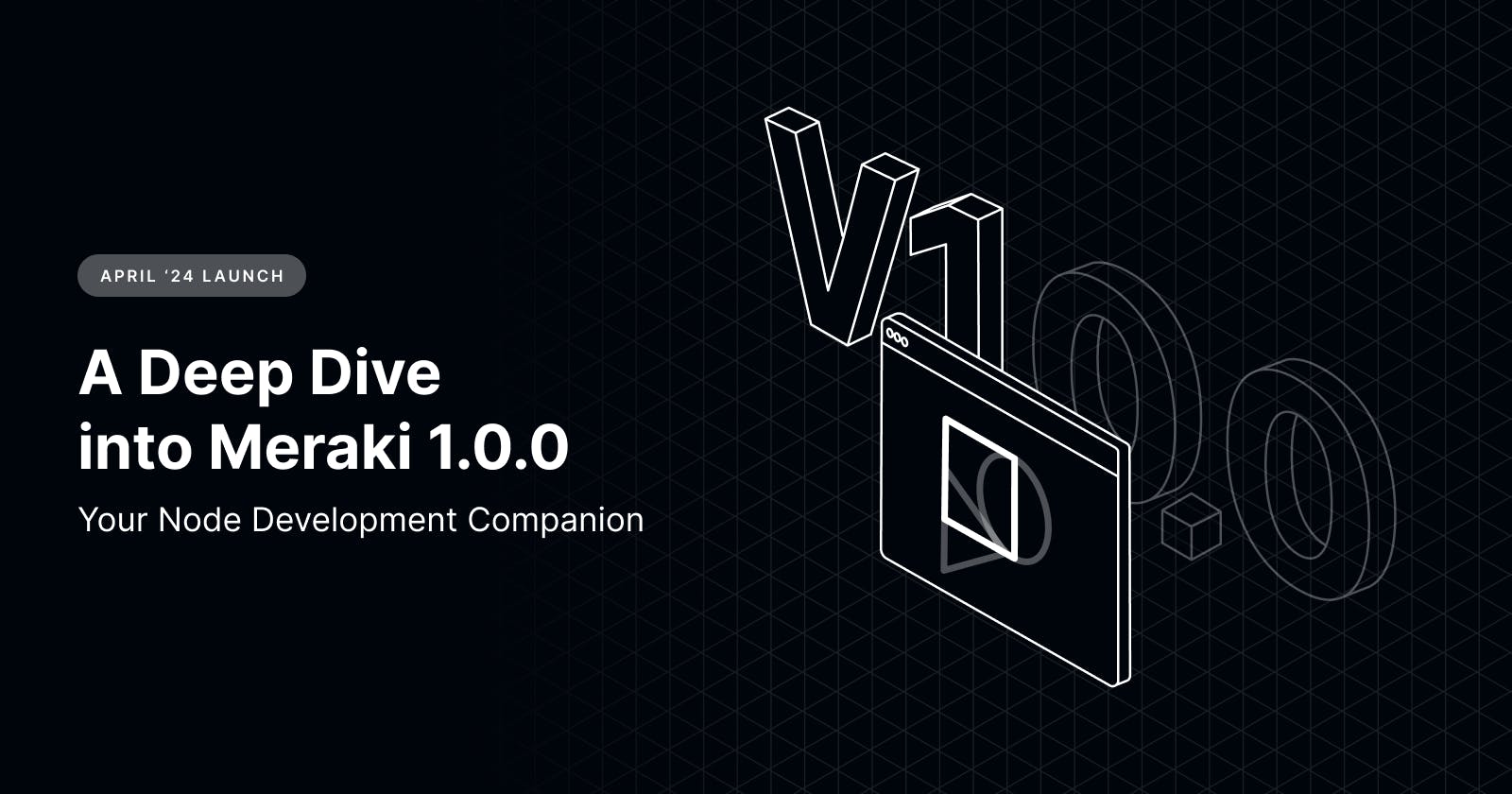Imagine this: your development team kicks off a new project which includes innovative new features. But as you sit down to begin, you realize that you’re faced with the daunting task of setting up your applications and plugins from scratch and navigating between different tools and tabs.
Hours tick by as you navigate through complex processes, grappling with command-line interfaces and tedious configuration tasks. Then, you find yourself entangled in a web of disparate tools and platforms, each demanding its own slice of attention and time. With each passing moment, valuable time and resources are wasted, slowing down your progress and dampening you and your team's enthusiasm.
This scenario is all too familiar in the world of backend development. But what if there was a solution—a way to streamline application management and accelerate development from the get-go?
Enter Meraki 1.0.0—the ultimate solution for simplifying application management within the Platformatic ecosystem by centralizing the essential functionality developers need.
What is Meraki?
Meraki is a development companion centralizing the key functionalities needed to build, operate and monitor Node.js applications. Meraki's Stackables templates, tailored for the Fastify framework, serve as the cornerstone of this experience. These templates not only provide a solid foundation but also act as a gateway to collaboration through the Stackables Marketplace. Here, developers can discover, share, and collaborate on pre-built solutions, accelerating development and fostering innovation.
So, what’s new in Meraki 1.0.0?
With the release of Meraki 1.0.0, our goal is clear: to elevate the developer experience and simplify enterprise-level Node.js development.
Seamless Local App Launch
Gone are the days of juggling multiple tools and command-line interfaces to launch local applications. With Meraki 1.0.0, users can now effortlessly launch local apps within the platform itself.
This intuitive feature eliminates the need for external tools or CLIs, simplifying application management workflows and allowing developers to focus more on building and less on setup. Whether you're a seasoned developer or just starting your journey, launching your applications has never been easier.
Let’s take a look at this in action.
Manage Platformatic applications running within Meraki or running within your system:
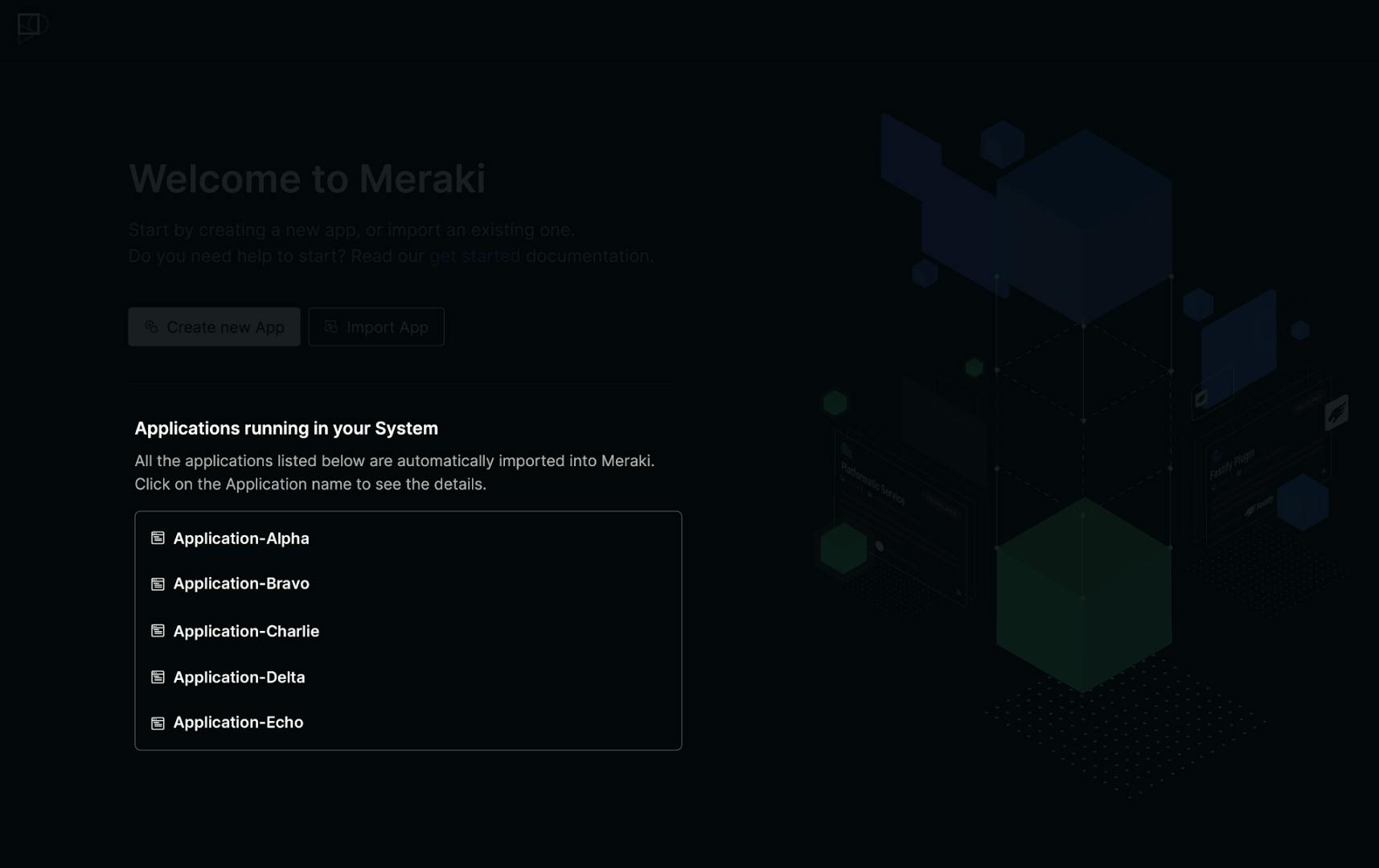
Critical Runtime Metrics
Understanding the performance of your applications is essential for optimizing efficiency and reliability. However, implementing comprehensive metrics has traditionally been a time consuming task that requires extensive configuration and setup, diverting valuable time and resources away from core development tasks. Oftentimes, once implemented, developers face an information overload with endless metrics to parse through.
By now offering a built-in mechanism for collecting and visualizing runtime metrics, Meraki streamlines the monitoring process, allowing developers to gain valuable insights into application performance with minimal effort and without information overload.
With just a few clicks, developers can access real-time data on memory usage, CPU utilization, event loop activity, and network performance, enabling you to identify bottlenecks, optimize resource utilization, and ensure that your applications are running smoothly and reliably.
To access metrics within Meraki, navigate to the Metrics tab on the left-hand side menu. Your metrics will show on screen as follows:
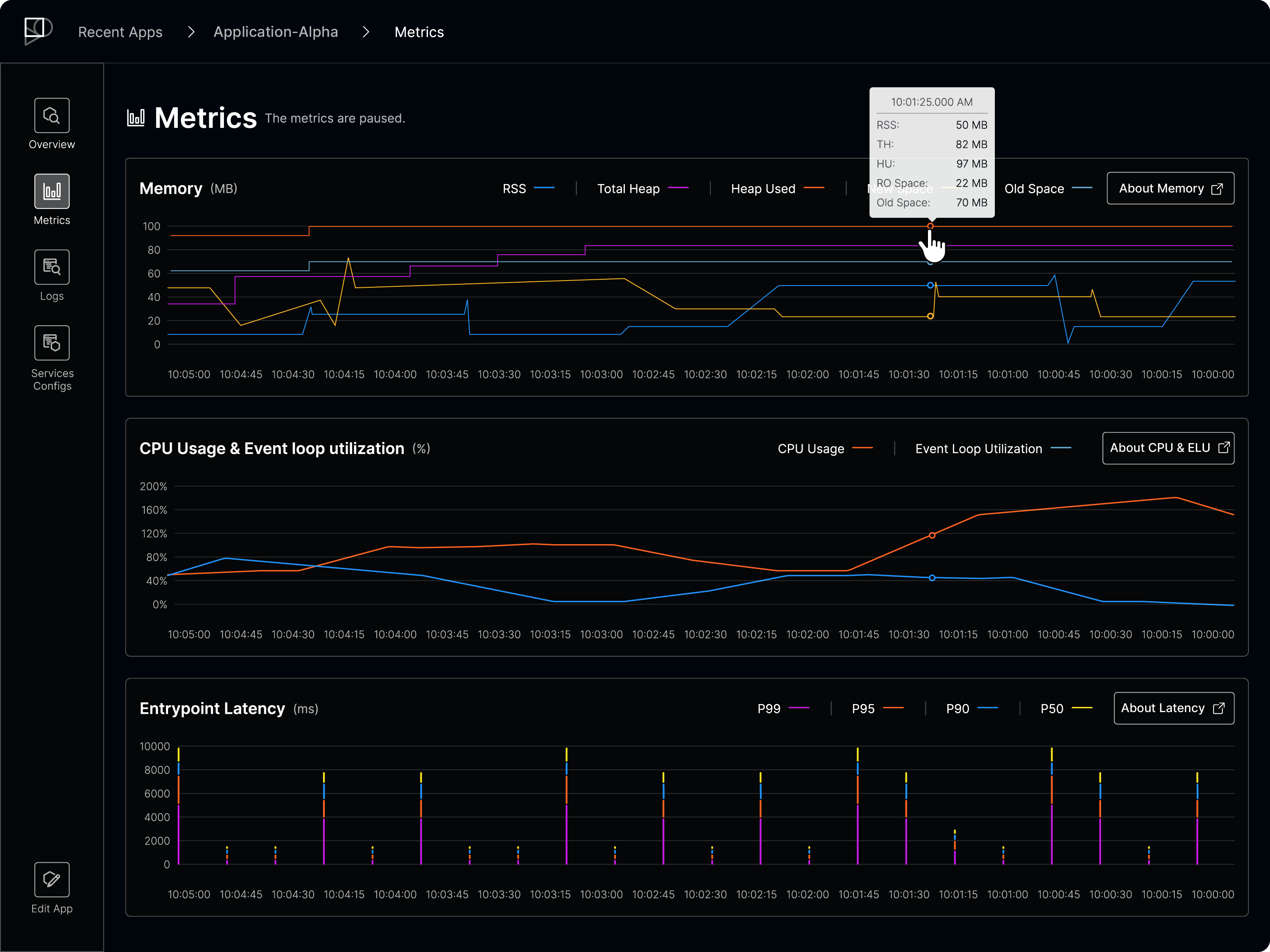
Note*: The metrics you will have access to will show the past five minutes of data and will only be pulled for applications that are currently running. To obtain more granular detail, you can hover over the graphs and see specific metrics for this time period.*
Streamlined Logging for Enhanced Debugging
Logging often feels like a manual chore—writing lines, removing lines, and hoping to catch crucial insights as you open your console and parse through every single log. But what if there was a simpler way?
Meraki now allows users to move away from manual log management by aggregating your application’s logs and allowing you to filter through them with ease.
Toggle through your services and logs for a frictionless visualization to help you quickly and easily identify what has gone wrong in your application.
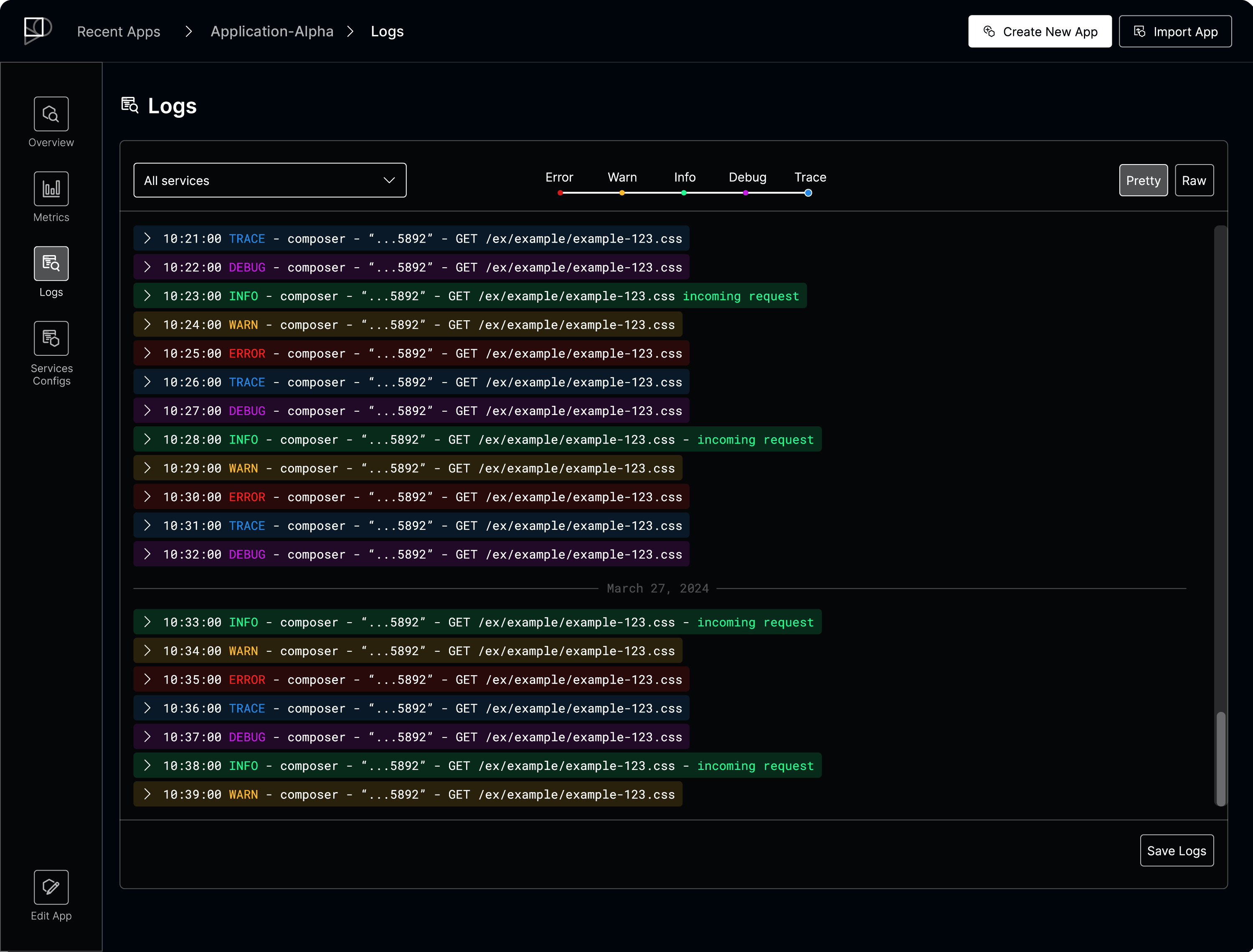
Effortless Auto-Restart and Version Management
Meraki 1.0.0 doesn't stop at simplifying development; it empowers developers with tools to streamline every aspect of the process.
The new auto-restart functionality ensures that changes in code trigger automatic restarts, reducing downtime and enhancing productivity. It also automatically detects if you are using the latest version of Platformatic.
Simple Application Ecosystem Navigation and Visualization
Understanding the intricate ecosystem of your project is paramount. However, navigating through services, plugins, and configurations can often feel like a maze.
Meraki now provides a comprehensive overview of your application's taxonomy, allowing you to navigate effortlessly between services, plugins, and configurations. This enables a clearer view of your architecture, and a better understanding of dependencies.
This streamlined navigation also reduces the time spent searching for specific components, allowing you to focus more on coding and problem-solving.
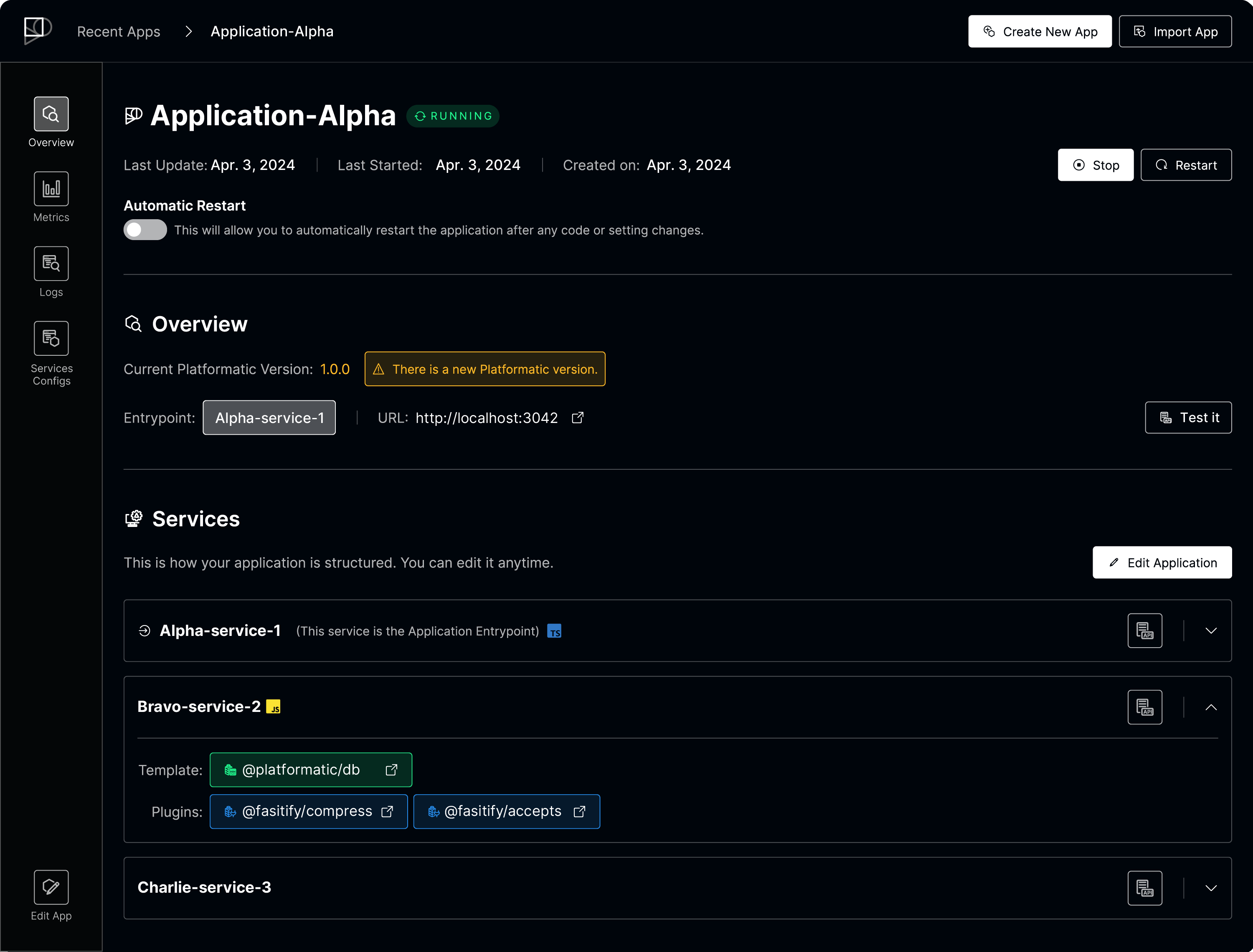
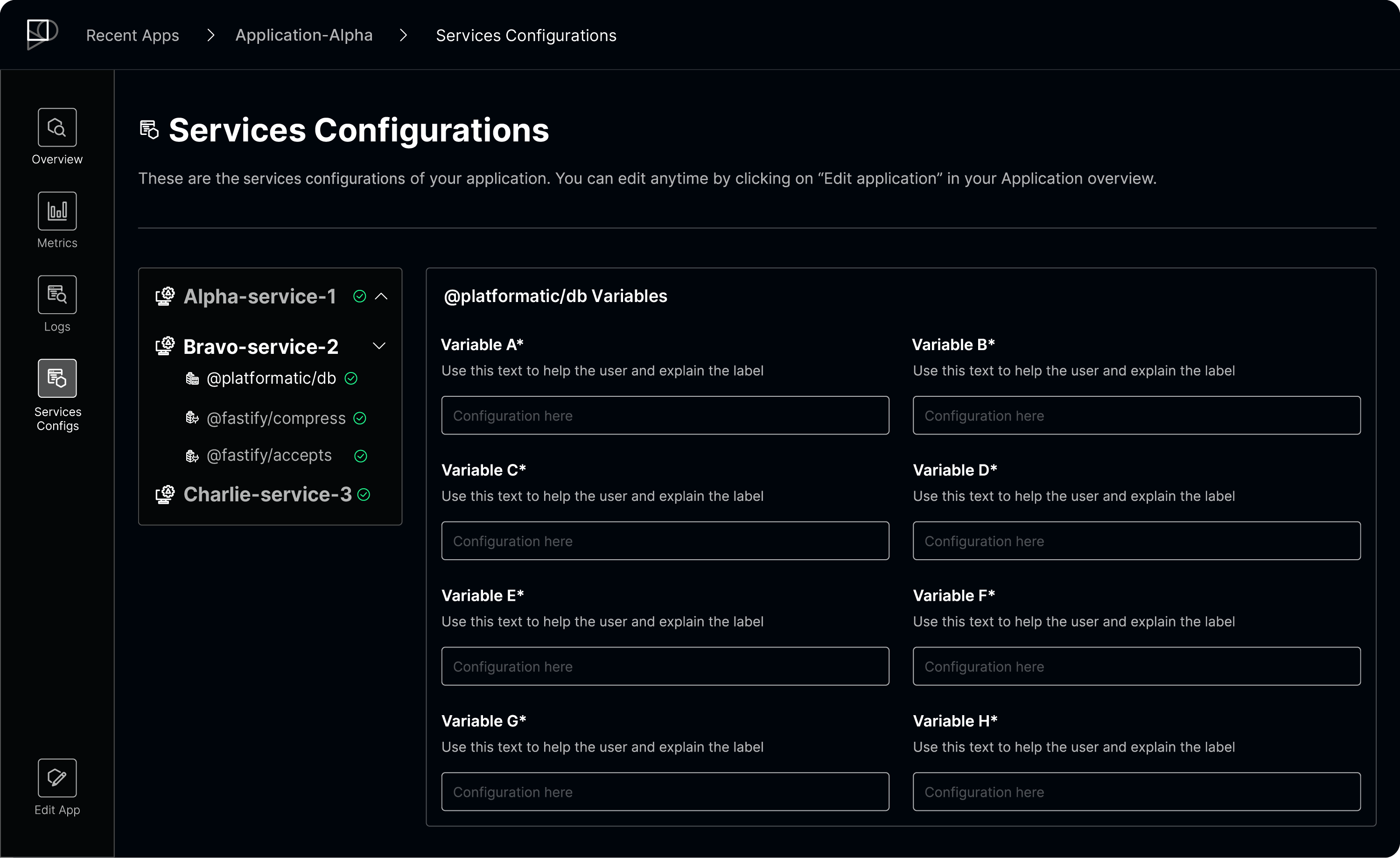
Scalar Integration
API documentation can often be a tedious and time-consuming task. The integration of Scalar, a suite of customizable developer documentation tools, into Meraki brings a host of powerful features, including a fully integrated REST API Client for testing endpoints, offline search powered by Fuse.js, and code snippet generation in multiple languages.
By streamlining backend development and API documentation, Scalar simplifies the developer experience, allowing you to focus on building amazing applications without the hassle of juggling multiple tools.
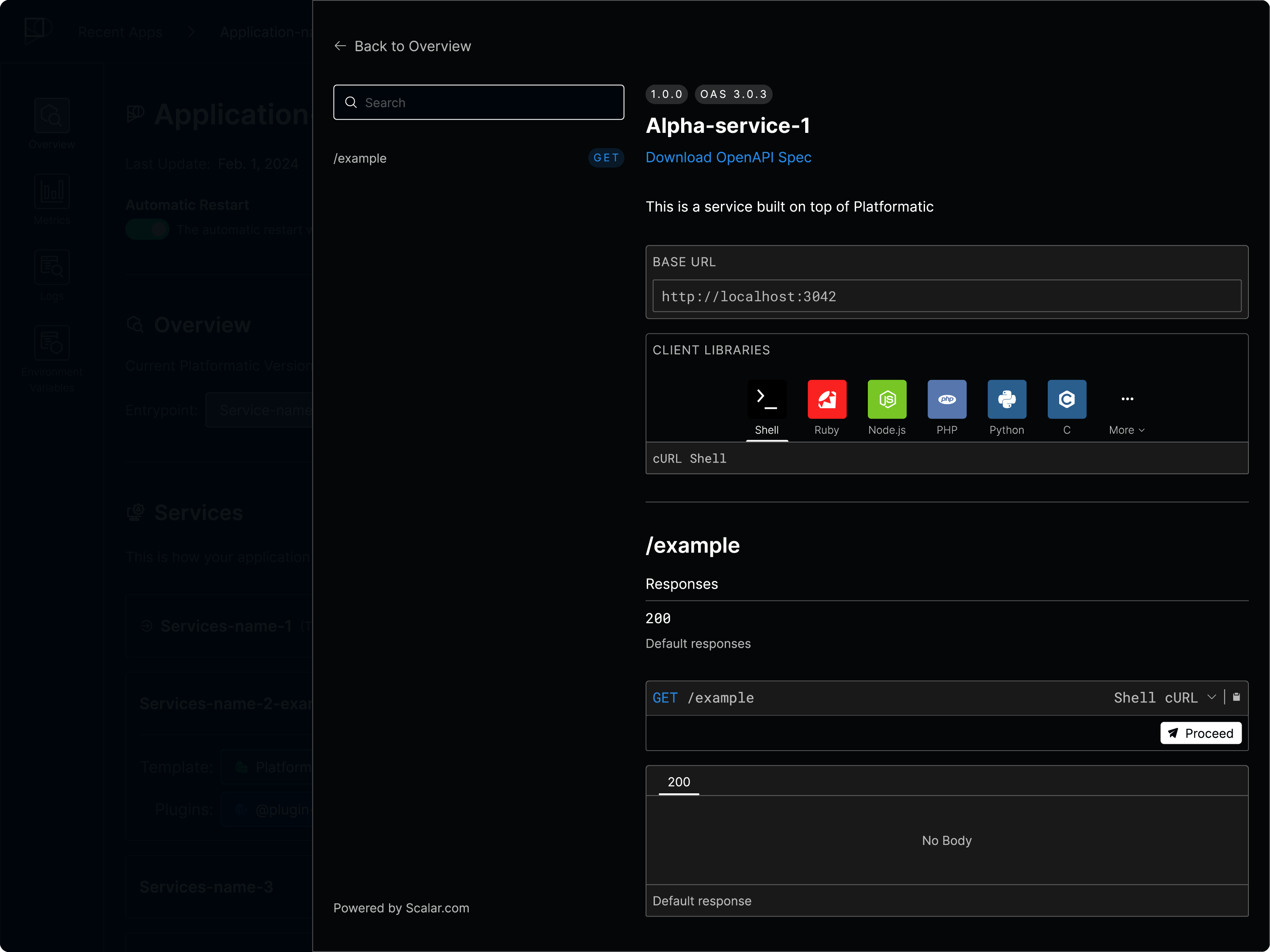
Wrapping Up
With Stackables templates and the Stackables Marketplace, Meraki expedites application bootstrapping and management, eliminating repetitive tasks and fostering collaboration. Seamlessly integrating essential functionalities like local app launching, critical runtime metrics, Scalar API documentation, and hassle-free auto-updates, Meraki empowers developers to innovate effortlessly.
Simplify your Node.js development journey today. Get started.

